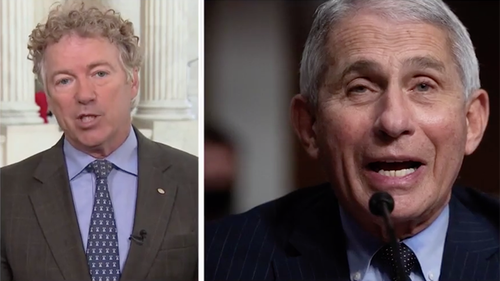This is the second in a series of recommended audio books. This one focuses on continental European history.
Recommended for everyone
The WEIRDest People in the World: How the West Became Psychologically Peculiar and Particularly Prosperous. By Joseph Henrich. Narrated by Korey Jackson. While this book is global in scope, much of the action takes place in Europe. “WEIRD” means “Western, Educated, Industrialized, Rich, and Democratic.” If you are reading this post, you are likely WEIRD, and compared to most humans past and present, you are therefore weird.
As the author explains, the social sciences long labored under the misapprehension that almost all of human psychology can be generalized. So studies of the most available subjects of for psychology experiments—namely American undergraduates, a very WEIRD group—we believed to be informative about human psychology in general. To the contrary, modern Westerners are quite different psychologically from most humans throughout history. They are far more individualistic, open to novel experiences, and willing to trust strangers. Whereas most of the world operates on a shame culture (your acts dishonor your clan), the West operates on guilt (an internal sense of wrong-doing). So an average person nobody in Pakistan would feel no shame about privately eating a tub of ice cream, whereas the same act creates intense guilt among some Westerners. Is accidentally taking a stranger’s briefcase on a train morally different from intentionally taking someone else’s briefcase? Westerners think the answer is absolutely yes, but most other humans, past and present, do not.
Tracing the odd development of the West through centuries of history and a mountain of social science research, Henrich finds the origins of WEIRD psychology in the Catholic Church’s ban on cousin intermarriage. We now know that cousin prohibition is not based on science, in the sense of reducing birth defects. But the Church’s ban on marriage even among very distant cousins forced people to marry outside the extended clan, and therefore to begin building trusted social networks with strangers. That set the ground for many other psychological changes.
In the audiobook, you can’t see the author’s many charts and tables, but I was OK with just the narrative descriptions of them. This book made me think a lot about Jonah Goldberg’s The Suicide of the West, which examines the decline of civilizational values, and the regression to tribalism, in contemporary Western politics, especially the United States.
William Shirer
Berlin Diary: The Journal of a Foreign Correspondent, 1934–1941. By William Shirer. Narrated by Tom Weiner. In the mid-twentieth century, radio journalist William Shirer brought thoughtful news analysis to the American public. His first great book, Berlin Diary, presented his first-hand accounts of Germany’s descent into Nazi madness.
End of a Berlin Diary: The Berlin Diary Series, Book 2. By William Shirer. Narrated by Grover Gardner. After the war in Europe ended, Shirer covered the San Francisco conference that created the United Nations. He then returned to Germany. Shirer found the German people fully accepted their defeat but not their responsibility. Instead, they blamed Hitler for not listening to his generals. Based on the first troves of captured Nazi documents, Shirer discovered that Hitler had been planning for war all along; he had rejected Mussolini’s idea to start the war five years later. In Hitler’s view, he was the indispensable personality to German military aggression.
The Collapse of the Third Republic: An Inquiry into the Fall of France in 1940. By William Shirer. Narrated by Grover Gardner. The histories of how great republics collapse is not one that modern Americans can afford to ignore. Shirer begins his story with the creation of the French Third Republic in 1870, and the reader learns a lot about the worsening problems of the Republic well before Hitler took over Germany in 1933. Shirer details the foolishness of much of the French political class, the evil of some of it (such as Pierre Laval, who worked hard to kill the ailing Republic), and the gross military incompetence and leadership failure of the French government during Hitler’s six-week blitzkrieg that conquered France in the spring of 1940. Most all, Shirer ascribes the responsibility for the fall of France to the French people, who had been so exhausted by World War I and then by political warfare that they lacked the will to fight to save themselves.
More on World War II
Hitler’s American Gamble: Pearl Harbor and Germany’s March to Global War. By Brendan Simms & Charlie Laderman. Narrated by Damian Lynch. Japan attacked Pearl Harbor on December 7, 1941. Hitler declared war on the United States on December 11. Many historians have argued that Hitler would have been wiser to let Japan and the U.S. fight in the Pacific, while Hitler concentrated on the British and the Soviets in Europe. Hitler’s American Gamble intensively covers intensively the events in Berlin, London, Moscow, Tokyo, and Washington in the crucial days between the Sunday morning of Pearl Harbor and the U.S. counterdeclaration of war on Germany on December 11. Notwithstanding Winston Churchill’s later bravado, the British were terrified that lend-lease aid would be cut as America devoted its military resources to stopping the Imperial Japan.
Hitler’s decision to go to war with America was far from impulsive. The U.S. and Germany were already in a limited, de facto naval war in the Atlantic, as Hitler tried to sink ships headed to Great Britain. In his view, defeating the British required cutting their naval lifeline, and that meant that unrestricted submarine warfare against transatlantic shipping. Further, he viewed a Japanese second front against the Western allies as a great boon, and he let the Japanese know that if they attacked the Western powers, including the European colonies in Asia, he would join them.
A Bridge Too Far. By Cornelius Ryan. Narrated by Clive Chafer. By August 1944, the German army on the Western Front was close to collapse. The Allies devised a daring plan to end the war by Christmas: British paratroopers would seize the Rhine River crossing at Arnhem, in the Netherlands. British tanks and infantry would fight their way north to join them at Arnhem. The bridges on the way to Arnhem would be captured and held by American paratroopers. If the Allies could get across Arnhem and onto the north German plain, they would have a clear path to Berlin. But the Germans were able to reconstitute their forces just in time. They slowed the British army advance long enough so they could wipe out the paratroopers near Arnhem. The Allies’ failed Operation Market-Garden, Sept. 17-25, 1944, is still debated today by military historians. Cornelius Ryan’s epic 1974 book, later made into a fine epic movie, is just as enjoyable as ever.
The Battle of Arnhem: The Deadliest Airborne Operation of World War II. By Antony Beevor. Narrated by Sean Barrett. Beevor’s 2018 book mines previously overlooked military archives to provide fresh insights on Market-Garden, including the experiences of the Dutch people.
Although the printed books by Ryan and Beevor have maps, the audio books do not, and you will need a map to follow the story. Maps are available, inter alia, at the History of War website.
How to ruin everything
Six Months That Changed the World: The Paris Peace Conference of 1919. By Margaret MacMillan. Narrated by Margaret MacMillan. The Versailles peace conference after World War I is widely blamed for helping to cause World War II, and its harmful effects are still with us today. How did the leaders at the conference end up making such catastrophic decisions? Read this deeply researched book and find out.
The Russian Revolution. By Richard Pipes. Narrated by Michael Page. Bad as the Versailles conference was, nothing in the twentieth century would lead to as much death and misery as the Bolshevik coup in Russia in November 1917. In this massive book of over 41 hours, Richard Pipes, one of the greatest of all Western scholars of Russia, describes the decades of government failure that paved the way for the Bolsheviks, including the failure of reformers to establish a functional constitutional monarchy.
The Bolsheviks could not have seized power without the single-minded, ruthless leadership of Lenin, one of the most evil and successful men of the century. The democratic socialists who had overthrown the Tsar in March 1917 were fully aware that the Bolsheviks intended to seize power and exterminate democracy and democrats. But the Russian democratic socialists were inept, poorly led, and too timid to confront the mortal peril. The Bolsheviks were always a small and militant minority, lacking popular support even among the workers’ councils (“soviets”) in whose name they purported to act.
The Coming of the Terror in the French Revolution. By Timothy Tackett. Narrated by Michael Page. An up-close examination of how a revolution that began based on the Rights of Man degenerated into totalitarian state terrorism. Short answer: the revolution really did have a lot of domestic enemies who wanted a restoration of the monarchy, and the revolutionaries became so consumed with factional in-fighting that they confused disagreement with disloyalty.
Ukraine
The Gates of Europe: A History of Ukraine. By Serhii Plokhy. Narrated by Ralph Lister. An excellent one volume survey of the history of this long-troubled region, starting with the Black Sea settlements of the ancient Greeks, up through Ukraine’s 2014 Maidan Revolution against Russian-controlled oligarchy. You will learn how what we today call “Russian” culture actually began in Kyiv; the complexities of the many ethnic groups in Ukraine; the history of Russian, Polish, and Austrian Empire efforts to exploit ethnic divisions in order to rule parts of Ukraine; the nation’s brief independence after World War I; the horrors of Tsarist, Nazi, and Soviet rule; and stories of Ukranians who collaborated and those who resisted.
The post Audio books on European history appeared first on Reason.com.
from Latest https://ift.tt/IhdgDRc
via IFTTT








